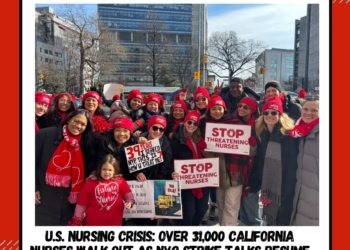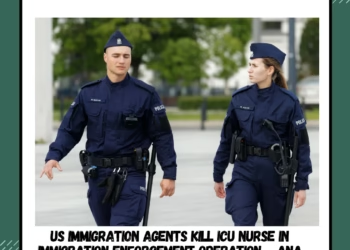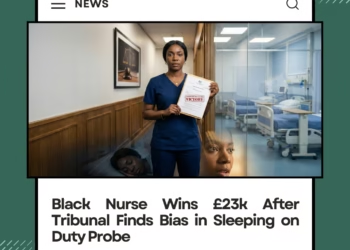Fellow Nurses Africa News, 30 August 2025.

Breaking News: Ghanaian Drug Smuggler Who Forged Nigerian Passport to Gain Settlement in the UK Sparks Public Health Concerns
A Ghanaian man, Oduola Toye, has ignited a contentious debate over immigration and public health after winning a tribunal ruling to remain in the UK, despite a 40-year history of drug smuggling and passport forgery. The Upper Tribunal’s decision on August 11, 2025, to allow Toye to stay—based on his family life under Article 8 of the European Convention on Human Rights—has prompted a strong Home Office appeal, citing his criminal past as a threat to public safety. This action not only undermine public trust and legal integrity but raises critical public health concerns that nurses must address with professionalism and care.
A History of Deception and Crime
Toye’s journey began in the 1980s when he entered the UK illegally using a forged Nigerian passport under the alias Sunday Ogundare. Convicted of deception in 1987, he was deported to Nigeria. In 1993, he returned on a visitor’s visa as Ogundare Theophulus Badmus, only to be arrested for smuggling cocaine, serving four years in prison and facing deportation in 1995. Undeterred, he re-entered in 1996, secured indefinite leave to remain in 2001, but was deported again in 2003 after fraud suspicions. In 2005, he illegally re-entered via Ireland with another forged passport as Adesoji Babatunde, remaining undetected until 2011.
Over the years, Toye lodged multiple appeals, including a name change in 2018 to Toye Oduola Oyekola. The Upper Tribunal, led by Judge Sarah Pinder, ruled in his favor, noting his family ties with three UK-born adult children and no further fraud since 2011. The judge criticized the Home Office’s 11-year delay in processing his case as “inexcusable,” tipping the balance toward his right to stay. The Home Office, having deported nearly 5,200 foreign offenders last year—a 14% increase—is challenging this ruling, arguing Toye’s drug smuggling history justifies removal.
Public Health Concerns for Nurses
Toye’s case, while a clear breach of law, has sparked concerns about its impact on public health, particularly for nurses serving migrant communities. Here’s what this means:
-
Mental Health Strain
The uncertainty surrounding deportation cases like Toye’s can heighten anxiety and depression in affected families. A 2015 study suggests immigration enforcement increases psychological distress among migrants, placing nurses in a key role to provide trauma-informed care without endorsing illegal behavior. -
Healthcare Access Barriers
Migrants with irregular status may avoid seeking care due to fear of detection, as noted in a 2019 study on NHS challenges. Toye’s prolonged illegal presence may deepen community distrust, challenging nurses to ensure access using tools like NHS England’s “safe surgeries toolkit” while upholding ethical standards. -
Impact on NHS Workforce
With 27% of NHS nurses in England from overseas, including many from Ghana and Nigeria, Toye’s case contrasts with the lawful contributions of migrant healthcare workers. The 2024 Royal College of Nursing report highlights visa policy strains on these nurses, urging support for their legal status without excusing fraud.
A Call to Action for Nurses
Nurses must navigate these public health challenges with integrity:
- Provide Ethical Care: Support lawful migrants’ health needs through resources like Doctors of the World, ensuring no tolerance for criminal acts.
- Foster Trust: Use culturally sensitive care to rebuild community confidence impacted by such cases.
- Advocate for Equity: Champion fair policies for overseas nurses, strengthening the NHS workforce.
As the Home Office appeal progresses, Toye’s case underscores the need for nurses to address public health fallout with compassion and accountability. Share your insights below or subscribe to our news letter for ongoing updates on nursing and health policy.
Fellow Nurses Africa is the independent voice of African nursing, we educate, inform and support the nursing profession










